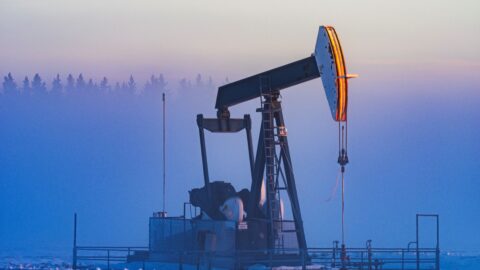What InsideClimate Got Right And Wrong About EDF’s Methane Work
 On April 8, InsideClimate News published an in-depth story about Environmental Defense Fund’s groundbreaking work to measure emissions of methane.
On April 8, InsideClimate News published an in-depth story about Environmental Defense Fund’s groundbreaking work to measure emissions of methane.
While we don’t agree with everything in the story, we’re glad it recognizes the scope, ambition and scientific integrity of our work. As InsideClimate News concludes:
Environmental groups almost never take on scientific research efforts. Investigations on this scale are normally organized by the federal government or the National Academy of Sciences. Coordinating what’s become an $18 million series of 16 studies by more than 100 researchers has turned EDF into a heavyweight on the science of methane pollution.
The project’s findings will influence government policy concerning the $292 billion-a-year U.S. oil and gas extraction industry and the regulation of fracking…[And] environmentalists acknowledge that EDF has managed to pass some of the nation’s strictest regulations where others have failed.
InsideClimate News interviewed 40 scientists, activists, academics and industry representatives – more than half of whom aren’t involved with the EDF research. This group included 15 methane researchers. None of them said they thought the industry was manipulating EDF’s research results or pressuring scientists to change their data.
But the story also gets some important things wrong, on issues the reporters never asked us about.
We’d like to offer corrections on those points, which we have raised directly with the editors, along with some additional perspective on this important story about methane – a potent greenhouse gas and main component of natural gas.
Correcting the Record
The article says that EDF “generally supports fracking.” This is not accurate. We have never advocated in favor of fracking. Instead, we recognize that fracking is a widespread reality. Rather than trying to draw an untenable line in the ground, EDF has fought hard to protect communities and ecosystems from unacceptable impacts by putting in place strong rules and enforcement. That includes regulation to protect air and water as well as our methane work.
The writers also say that EDF’s position on natural gas is “evolving.” They quote EDF’s Mark Brownstein in 2012, saying that “On balance, we think substituting natural gas for coal can provide net environmental value, including a lower greenhouse gas footprint.”
This was true then, and it is true now. It does not suggest that natural gas will provide net value, only that it can – provided both local impacts and methane emissions are controlled. As we have always said, that is a very big if. Our position has not “evolved” on any of that, and it was bad form for the reporters to make such an assertion without letting us respond to it.
Finally, the article suggests that EDF supports natural gas as a “bridge fuel.” That is not a term we use or a concept we endorse.
The fact is, our society is on a carbon highway and needs to get off of it. With the right policies, natural gas can help provide an exit ramp, reducing our current emissions and helping to accelerate the transition to truly clean, renewable sources of electricity – the destination EDF believes we need to reach as quickly as possible. That’s why clean energy (not natural gas) is the fastest-growing program at EDF.
Our commitment to transparency and sound science
Energy companies were involved in this research effort, making their facilities available to the scientific study teams and, in some cases, providing financial support to the academic institutions conducting the work (though never to EDF; we do not accept contributions from energy companies).
InsideClimate News and others seem puzzled that organizations that don’t necessarily share the same policy goals might still have a common stake in gathering honest and impartial data. It’s a measure of how polarized the energy debate has become that an attempt to reach agreement on basic facts is seen as suspect.
For almost 50 years, EDF has built our advocacy on strongest possible scientific foundations. We know that not everyone is always going to agree with our views, but our allies and adversaries alike know that we come by our positions honestly, rigorously, and with the utmost transparency.
This is particularly important given the atmosphere of mistrust surrounding natural gas development. That is why we have been clear from the start about the funding for this research, our relationships with industry and others collaborating on the work, and the rigorous review process to which all of the findings are subject before publication.
We undertook our methane research determined to go wherever the data led. We have found some instances where previous leakage estimates were too high – either because science got better, or the technology and operating practices improved, or both. And we have found many where past estimates would prove way too low.
Overall, the picture shows that methane is a huge and growing problem, that strong state and federal regulation is necessary to control it, and that there are cost-effective opportunities to reap major emission reductions.
We do not expect, nor have we ever suggested, that this research will be the last word on the subject. To the contrary, it is our hope and expectation that others will build on these findings, validating them where they can and challenging them when appropriate.
That, of course, is the essence of the scientific method, and we’re committed to it.
This post originally appeared on EDF Voices.












2 Comments
The Methane pollution of energy giants like EDF and co, have their roots in an industry of power.. that should tell you enough, but now – comapnies like EDF are lobbying the highest ranks of western governments – to propose new fracking legislation.. a clear breach of public responsibility. More info here http://serviceclientcontacter.website/edf-service-client-edf-contact/
Hello. We would like to clarify we are a non-profit organization, Environmental Defense Fund, not to be confused with Electricite De France, the French utility. Thank you.